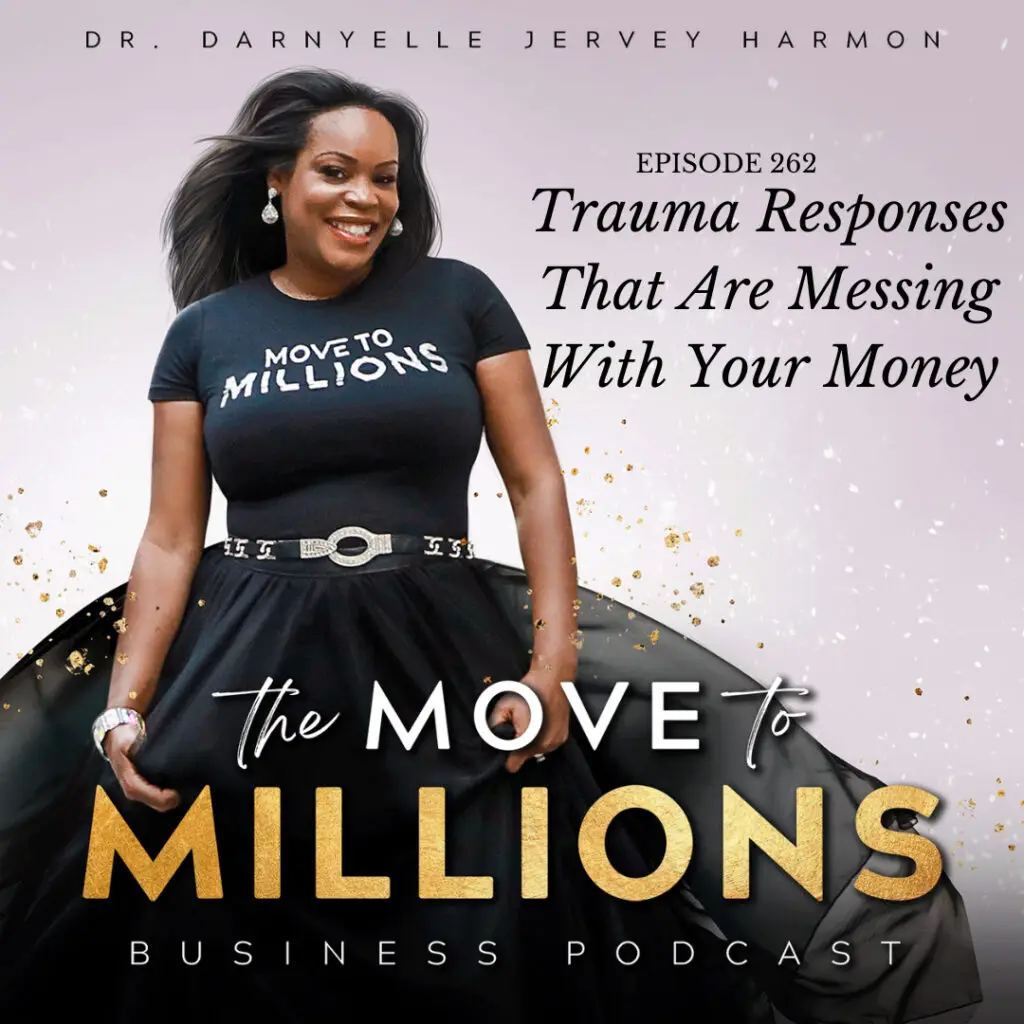When I first started to set my sights on crossing the million-dollar mark in my business, it eluded me for many years. The reason? Money Trauma. Trust me, it’s more common than we realize, and tackling it head-on could be the key to achieving your full financial potential.
Understanding Money Trauma
So, what exactly is money trauma? According to Google, Money Trauma is defined this way: a term that describes emotional, cognitive, relational, and physical symptoms that can result from significant financial stressors. Some examples of money trauma include poverty, financial co-dependency, divorce, sudden loss of assets, housing insecurity, money scarcity, caregivers who valued work more than family time, caregivers who taught that money success was the only worthy metric of success.

It’s important to understand that responses to how you see money impact your business growth. For some, it’s why you under-charge. For others, it’s why you over-charge.
Identifying My Money Personality
I’ve successfully dealt with my own money trauma and before I could start healing, I needed to figure out my money personality. We all have different ways of relating to money, and I found out that these often fall into one of four types: Spenders, Avoiders, Money Monks, and Investors. Here’s how I broke it down:
- Spenders: I sometimes seek validation through buying things, equating possessions with self-worth. That designer bag might feel great at the moment, but I had to ask myself—is it just filling an emotional gap?
- Avoiders: There have been times when I felt the urge to avoid financial responsibilities—like avoiding checking my bank balance as if it’s a horror movie scene.
- Money Monks: I realized that I might be a Money Monk, struggling with the idea of deserving abundance, often due to negative views on money from childhood.
- Investors: This is where I want to be—seeing money as a tool for growth, making strategic decisions, and viewing money as an opportunity rather than a source of stress.
Recognizing my money personality was the first step. The next step? Shifting my mindset. ItIt became time for me to challenge those deeply ingrained beliefs like “all money isn’t good money” or “I just need enough to get by.” Those aren’t facts—they’re trauma responses.
Here’s what I’ve learned: Financial success starts in your mind. Your subconscious beliefs, shaped by early experiences, play a huge role in how you handle money today. By acknowledging and addressing these roots, you can start to reshape my financial future.
The Lessons I’ve Learned Along The Way
Having a multimillion-dollar vision has become a powerful motivator for me. It’s not just about setting goals, but about making sure those goals are aligned with both practical and spiritual principles. When I know where I want to go, the path to get there becomes clearer.
Reviewing and releasing past traumas, activating my vision, and increasing my tolerance for abundance has been key. This process has helped me get more comfortable with the idea of wealth.
I’ve also learned the importance of surrounding myself with like-minded individuals. Having a community that supports and motivates me makes sticking to my goals so much easier. It’s about aligning my actions with my beliefs and embodying an energy of abundance. Sharing my journey, celebrating milestones, and learning from others is a vital part of my success. It’s part of the reason that I hold God Girls Making Millions ® annually. At GGMM, like, heart and spirit minded women come together to have those conversations we can’t have anywhere else. It’s a game changer.
And one of my biggest revelations is how self-worth and financial success are connected. When you undervalue yourself, you tend to undervalue your services or hesitate to invest in opportunities for growth. It’s a cycle one that you’ll need to break free from if you desire to have access to millions.
Tips for Rewiring Your Money Blueprint
So, how do you go from trauma to triumph? Here’s what has been working for me:
- Self-Reflection: I spend time journaling about my money memories and the emotions they bring up. It’s surprising what comes to the surface.
- Affirmations: I created positive money affirmations to replace those old, negative beliefs (e.g., “I am deserving of wealth”).
- Education: Increasing my financial literacy has been a game changer. The more I understand about money management, the less fearful and more confident I feel.
- Professional Help: Speaking to a financial coach or therapist experienced in financial trauma has been invaluable for me.
Final Thoughts
Rewiring my relationship with money hasn’t been an overnight process, but each small step is taking me closer to financial freedom. It’s not just about the money itself; it’s about shifting your energy and mindset that surrounds money.If you’re eager to dive deeper and uncover more tips on conquering money trauma, I highly recommend listening to the full episode of the Move to Millions podcast. My personal experiences and expert insights can guide you toward unlocking your financial potential. Plus, check out the incredible resources available, including my best-selling book Move to Millions and coaching programs tailored to aspiring million-dollar CEOs like us.
**This post was written with the help of AI**


